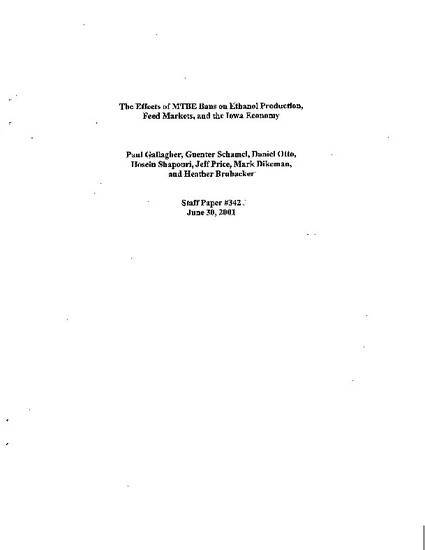
Article
The Effects of MTBE Bans on Ethanol Production, Feed Markets, and the Iowa Economy
Economic Staff Paper Series
Document Type
Report
Publication Date
6-30-2001
Number
342
Disciplines
Abstract
Ethanol isa gasoline additive. Increasing quality demands ofmodem gasoline engines and government regulations on health and clean air have shaped the gasoline additives market. So fer, two regulatory changes stand out. First, a lead-based additive, the octane-increasing choice during the 50s and 60s, was banned during the 70s because itcauses cancer. Second, the U.S. EPA required that the largest U.S. cities use reformulated gasoline with fuel quality restrictions that reduce smog (groiind level ozone) and improve other dimensions of airquality inthemost densely populated areas oftheU.S. An oxygen standard was included inthe fuel quality restrictions onreformulated fuel, on the grounds that oxygen fecilitates complete combustion and improves air quality. Ethanol demand received amajor boost from both the lead ban and reformulated fuel Ethanol hasthe highest octane and oxygen content inthe fiiel additives market
Citation Information
Paul Gallagher, Guenter Schamel, Hosein Shapouri, Jeff Price, et al.. "The Effects of MTBE Bans on Ethanol Production, Feed Markets, and the Iowa Economy" (2001) Available at: http://works.bepress.com/paul-gallagher/2/
